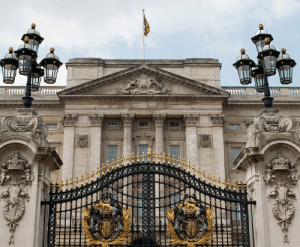The British Royal Family, often referred to as "The Firm," has long been a paradoxical institution. On one hand, it stands as a symbol of tradition, unity, and national identity. On the other, it remains a glaring reminder of privilege, scandal, and entitlement. At the heart of this paradox lies Prince Andrew, a man who has consistently turned scandal into an art form and brought the concept of "royal embarrassment" to unprecedented levels.

To call Prince Andrew a "corrupted son" is almost too generous. Corruption implies a certain cunning, a Machiavellian instinct to manoeuvre and manipulate. But Andrew’s corruption is more banal: an unearned arrogance mixed with a staggering lack of self-awareness. He is the epitome of what happens when privilege is given free rein without the moderating forces of accountability or responsibility. Here is a man whose military service, often touted as a badge of honour, was overshadowed by his subsequent descent into mediocrity and controversy.
Andrew's friendship with convicted sex offender Jeffrey Epstein has become the defining scandal of his life—and rightfully so. The infamous BBC interview, in which Andrew attempted to explain away his relationship with Epstein, revealed a man so deeply disconnected from reality that it bordered on the absurd. His claim that he could not sweat due to a medical condition was not just a poor attempt at refutation but a masterclass in self-sabotage. It’s almost poetic how a man who once carried the title "His Royal Highness" managed to reduce himself to a global punchline with a single interview.
But Andrew’s issues are not confined to Epstein. His financial dealings, questionable friendships with autocratic regimes, and penchant for luxury at taxpayer expense paint a broader picture of a man who has consistently abused his position. Whether it’s accepting dubious gifts or living a life of opulence far beyond his official income, Andrew embodies the very worst of what monarchy represents in a modern democracy.
And what of his role as a brother? As the son of Queen Elizabeth II and the sibling of King Charles III, Andrew occupies a peculiar position within the royal hierarchy. He is neither the heir nor the spare but something in between: a shadowy figure whose relevance has diminished over time. Yet, instead of accepting this with grace, Andrew has clung to his fading influence with the desperation of a man who knows he has little else to offer. His public clashes with Charles and his rumoured lobbying for a return to royal duties illustrate his inability to read the room—a room that, quite frankly, would rather he stayed out of sight.
As an uncle, Andrew’s legacy is equally tarnished. His presence casts a long shadow over younger royals like Prince William and Prince Harry, who are left to navigate a world where the monarchy’s relevance is increasingly questioned. Andrew’s scandals have not just damaged his own reputation but have eroded public trust in the entire institution. When younger members of the family are forced to answer for his misdeeds, it becomes clear that his actions have consequences far beyond his own life.
The dysfunctionality of the British Royal Family is not solely Andrew’s doing, but he has certainly amplified it. His scandals have exposed the cracks in an institution that thrives on secrecy and tradition. The monarchy’s response to Andrew’s controversies—from stripping him of his royal titles to distancing him from public duties—has been reactive rather than proactive. It’s damage control masquerading as accountability, a feeble attempt to protect an institution that seems increasingly out of step with modern values.
The irony, of course, is that Andrew’s downfall has made him a symbol of what many people despise about monarchy: unearned privilege, arrogance, and a lack of accountability. In trying to defend himself, he has inadvertently strengthened the arguments of republicans who see the monarchy as an anachronism. How can an institution that harbours figures like Andrew claim to represent the best of Britain?
Perhaps the most damning indictment of Prince Andrew is not his scandals but his failure to learn from them. Instead of reflecting on his actions and their impact, he has doubled down, insisting on his innocence and demanding a return to the public stage. It’s a pattern of behaviour that reveals a man who sees himself as untouchable, even as the world around him crumbles.
In the end, Prince Andrew is not just a corrupted son, a debilitated brother, and a disgraced uncle. He is a mirror held up to the British Royal Family, reflecting its flaws, contradictions, and vulnerabilities. His story is a cautionary tale of what happens when privilege is unchecked and accountability is ignored. And while Andrew may never fully comprehend the damage he has done, the rest of us are left to grapple with the uncomfortable truth: that the monarchy, for all its pomp and pageantry, is only as strong as its weakest link. And right now, that link is Prince Andrew.

No comments:
Post a Comment